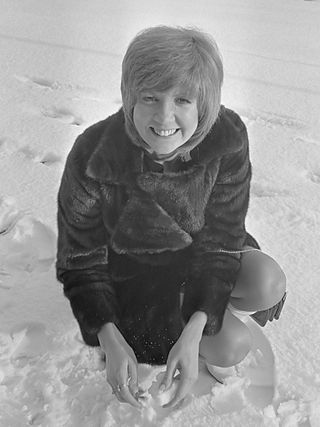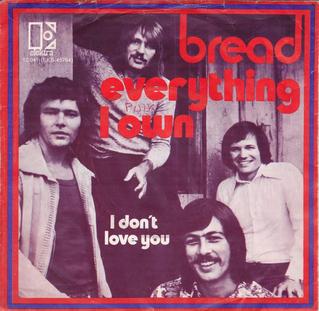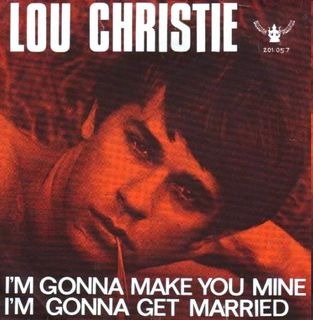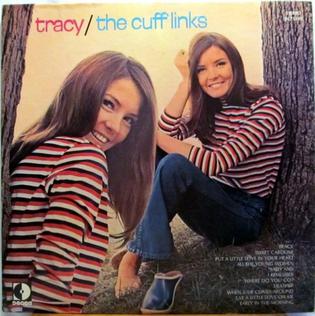
Priscilla Maria Veronica White, better known as Cilla Black, was an English singer, actress and television presenter.
Philip Coulter is an Irish musician, songwriter and record producer from Derry, Northern Ireland. He was awarded the Gold Badge from the British Academy of Songwriters, Composers and Authors in October 2009.

"Medley: Aquarius/Let the Sunshine In " is a medley of two songs written for the 1967 musical Hair by James Rado and Gerome Ragni (lyrics), and Galt MacDermot (music), released as a single by American R&B group the 5th Dimension. The song spent six weeks at number one on the US Billboard Hot 100 pop singles chart in the spring of 1969 and was eventually certified platinum in the US by the RIAA. Instrumental backing was written by Bill Holman and provided by session musicians commonly known as the Wrecking Crew. The actual recording was novel at the time, being recorded in two cities, Los Angeles and Las Vegas, and being mixed down to a final version later.

"You've Lost That Lovin' Feelin'" is a song by Phil Spector, Barry Mann and Cynthia Weil, first recorded in 1964 by the American vocal duo the Righteous Brothers, whose version was also produced by Spector and is cited by some music critics as the ultimate expression and illustration of his Wall of Sound recording technique. The record was a critical and commercial success on its release, reaching number one in early February 1965 in both the United States and the United Kingdom. The single ranked No. 5 in Billboard's year-end Top 100 of 1965 Hot 100 hits – based on combined airplay and sales, and not including three charted weeks in December 1964 – and has entered the UK Top Ten on an unprecedented three occasions.

"Red Rubber Ball" is a pop song written by Paul Simon of Simon & Garfunkel and Bruce Woodley of The Seekers and recorded by The Cyrkle, whose version reached No. 2 on the US Billboard Hot 100, and in South Africa and New Zealand. In Canada, the song reached No. 1.

"Ring My Bell" is a 1979 disco song written by Frederick Knight. The song was originally written for then eleven-year-old Stacy Lattisaw, as a teenybopper song about kids talking on the telephone. When Lattisaw signed with a different label, American singer and musician Anita Ward was asked to sing it instead, and it became her only major hit.
William Wylie MacPherson, known professionally as Bill Martin, was a Scottish songwriter, music publisher and impresario. His most successful songs, all written with Phil Coulter, included "Puppet on a String", "Congratulations", "Back Home", and "Saturday Night". He was presented with three Ivor Novello Awards, including one as Songwriter of the Year.

"Anyone Who Had a Heart" is a song written by Burt Bacharach (music) and Hal David (lyrics) for Dionne Warwick in 1963. In January 1964, Warwick's original recording hit the Top Ten in the United States, Canada, Spain, Netherlands, South Africa, Belgium and Australia.

"You're My World" is a ballad originally recorded in 1963 as "Il mio mondo" by Umberto Bindi, who co-wrote the Italian version with Gino Paoli. Subsequently, an English version was commissioned, and the lyrics were written by Carl Sigman as "You're My World". The song reached No. 1 in Australia (twice), Belgium, Mexico, Netherlands, South Africa and United Kingdom in recordings by Cilla Black, Daryl Braithwaite, Guys 'n' Dolls and Helen Reddy. Black's and Reddy's versions reached the US Top 40 in 1964 and 1977, respectively. The song also reached No. 1 in France and Spain in the respective translations "Ce monde" and "Mi Mundo", both sung by Richard Anthony.

"Everything I Own" is a song written by American singer-songwriter David Gates. It was originally recorded by Gates's soft rock band Bread for their 1972 album Baby I'm-a Want You. The original reached No. 5 on the American Billboard Hot 100. Billboard ranked it as the No. 52 song for 1972. "Everything I Own" also reached No. 5 in Canada and No. 1 in the Philippines.

The Best of Cilla Black is a compilation album by Cilla Black. It was first released in 1968 and originally included 14 of her biggest hit singles, a selection of B-sides and album tracks, released between 1963 and 1968. Many of these tracks had not been previously available on an album. It was usual in this period for artists to record songs exclusively for single release only. The album reached number 21 on the UK Albums Chart.

Surround Yourself with Cilla is Cilla Black's fourth solo studio album, released on 23 May 1969 by Parlophone Records. It was Cilla's first album to only be recorded and released in stereo sound format, and her first to fail to make the UK charts.
This discography is a list of singles and albums released by Cilla Black in her career.

The Very Best of Cilla Black is a career-spanning compilation album by English singer Cilla Black, released in October 2013 by Parlophone / Warner Music Group UK to mark her golden anniversary in show business. The album reached No. 37 in 2013 on the UK Albums Chart, which was Black's first Top 40 hit in thirty years. In September 2014, after the transmission of ITV biopic Cilla starring Sheridan Smith the album re-entered the UK Albums Chart and peaked at No. 26. The album was to make its ultimate peak at No. 1 after Black's death in August 2015, becoming her first number-one album. It also reached No. 1 in New Zealand on 21 August 2015 and stayed there for five consecutive weeks, making it the first album to achieve this since Sole Mio's eponymous album in March 2014.

"I'm Gonna Make You Mine" is a song released in 1969 by Lou Christie. It was featured on his 1969 album I'm Gonna Make You Mine, arranged by Stan Vincent and produced by Vincent and Mike Duckman.

"Visions" is a song released in 1966 by Cliff Richard. The song spent 12 weeks on the UK's Record Retailer chart, peaking at No. 7, while reaching No. 1 in Israel, No. 1 in Malaysia, No. 1 in Singapore, No. 4 on the New Zealand Listener chart, and No. 9 on the Irish Singles Chart. The song was a hit in other nations as well.

"Tracy" is a song written by Lee Pockriss and Paul Vance, the title track of their debut LP.

"You'll Never Get to Heaven " is a song composed by Burt Bacharach, with lyrics by Hal David. It was originally recorded by Dionne Warwick in 1964, who charted at number 34 in the US Billboard Hot 100 with her version. It was covered by the Stylistics in 1973, who reached number 23 in the US with their cover.

"She'd Rather Be with Me" is a song written by Garry Bonner and Alan Gordon and released by the Turtles in 1967. The song was the follow-up to "Happy Together".
"The Way It Used to Be" is a song recorded by Engelbert Humperdinck, which was released on the album Engelbert and as a single in 1969. It is an English language adaptation of the Italian language song "Melodia", which was originally released by Isabella Iannetti in 1968.
















